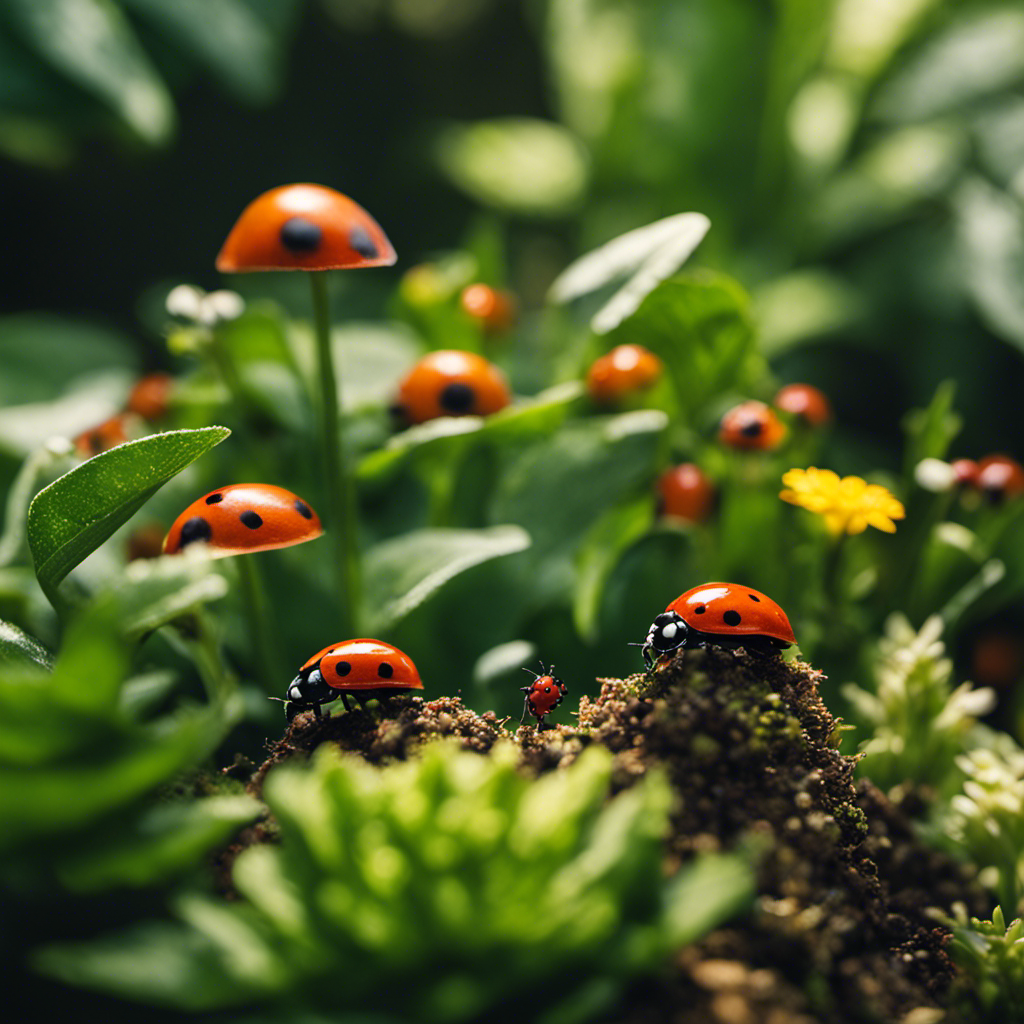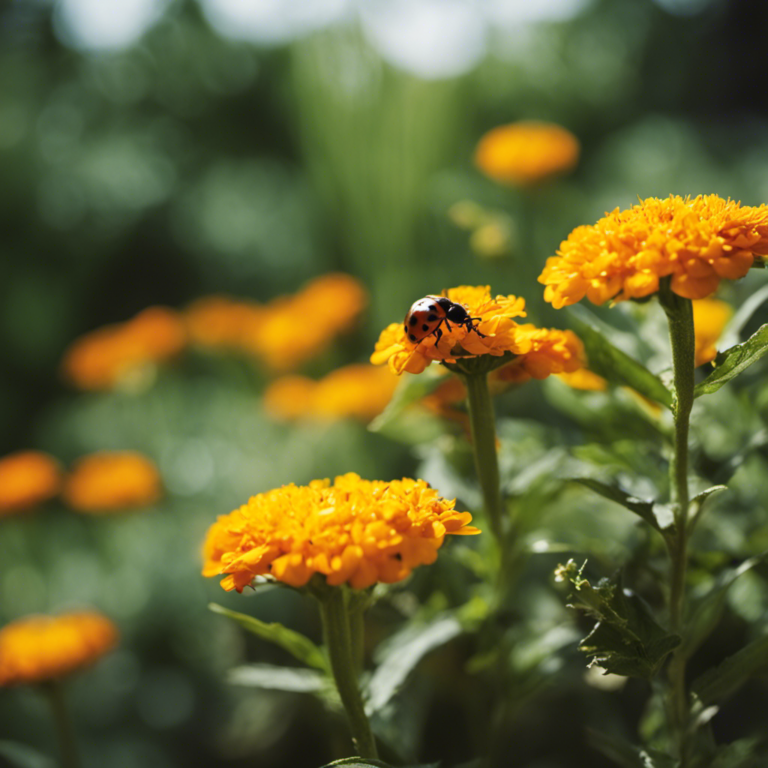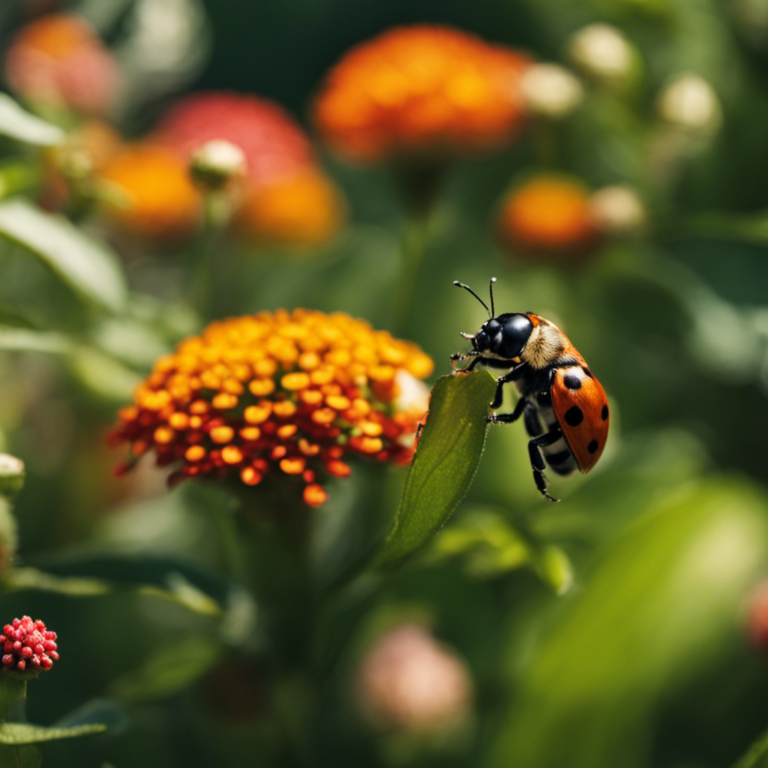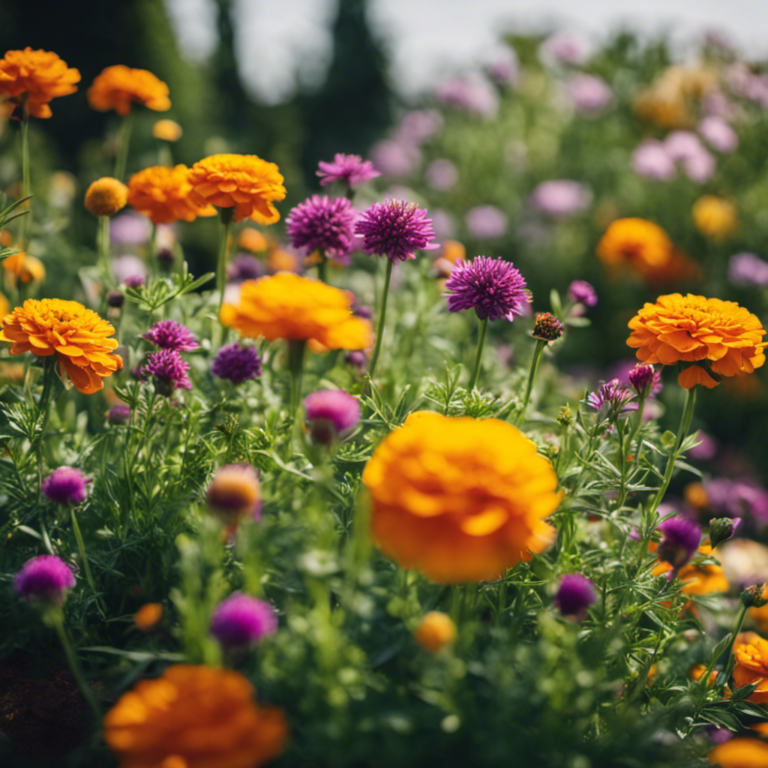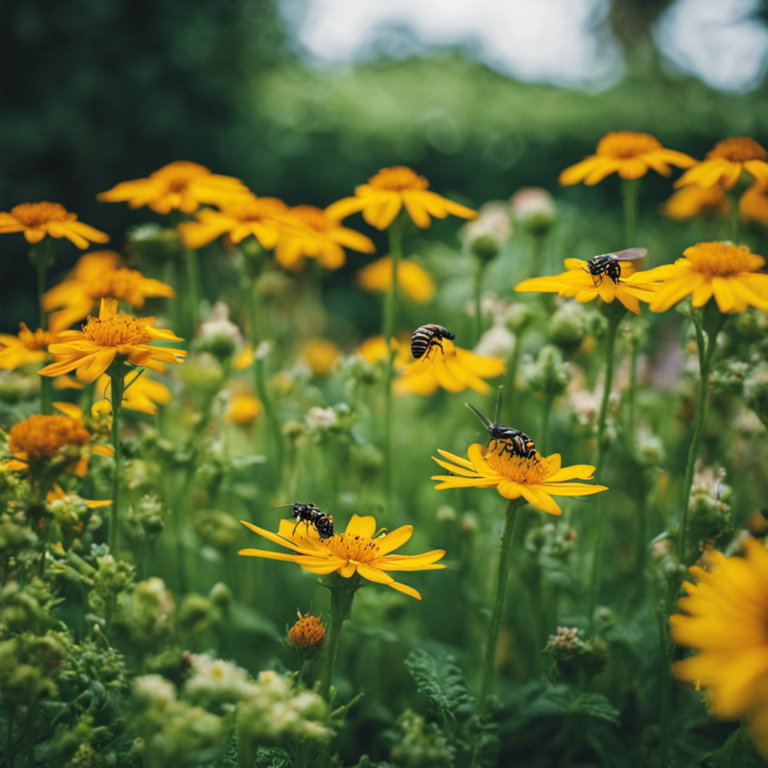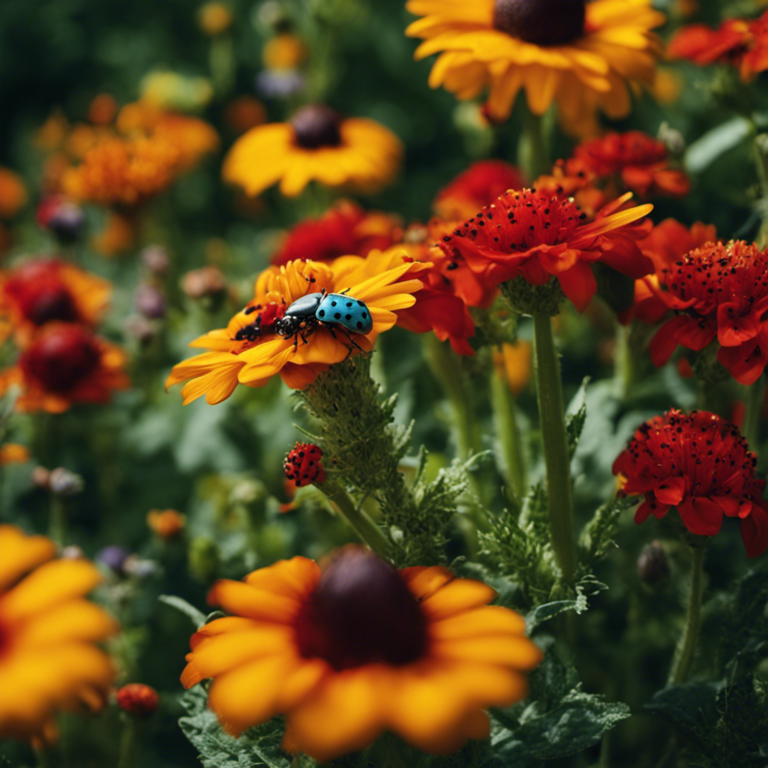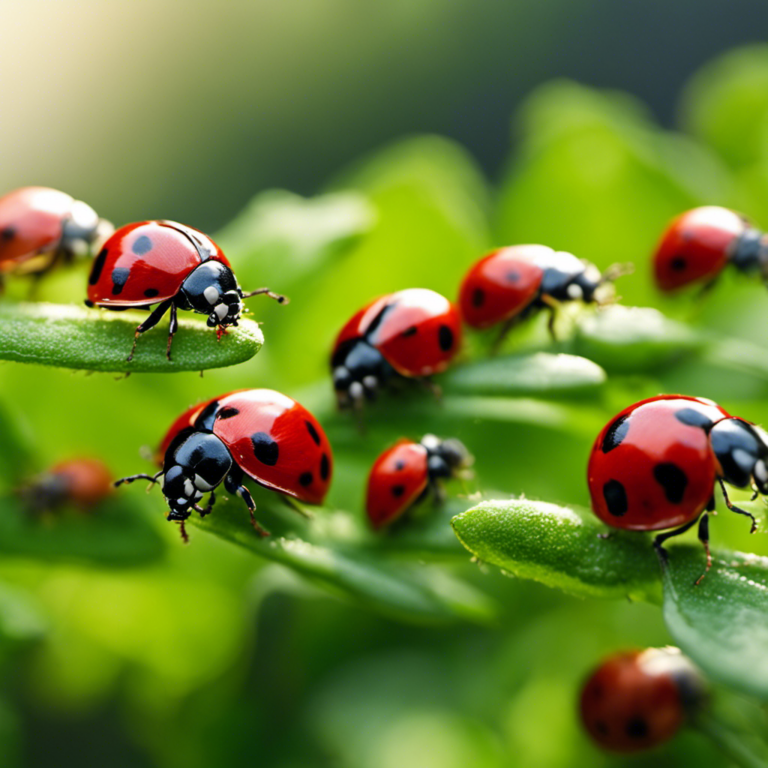Are pesky garden pests causing damage to your precious plants? Don’t worry! In this guide, we have the organic methods you need to outsmart those critters and reclaim your garden.
Instead of relying on harmful chemicals, we’ll show you how to attract natural predators and use companion planting strategies to defend your plants.
Additionally, we’ll provide tips for creating homemade pest repellents and maintaining healthy soil.
With these techniques, you’ll be equipped to create a thriving garden that remains pest-free.
Get ready to conquer those pests and enjoy the bountiful harvest you deserve!
Key Takeaways
So, there you have it! By using these organic methods to outsmart garden pests, you’ll be well on your way to a flourishing and pest-free garden.
Remember, attracting natural predators, practicing companion planting, creating homemade pest repellents, and maintaining healthy soil are all crucial steps in keeping those bothersome pests at bay.
While it may require some extra effort, the rewards of a bountiful and beautiful garden are definitely worth it. So go ahead and get out there, and start gardening like a pro!
Understanding Garden Pests
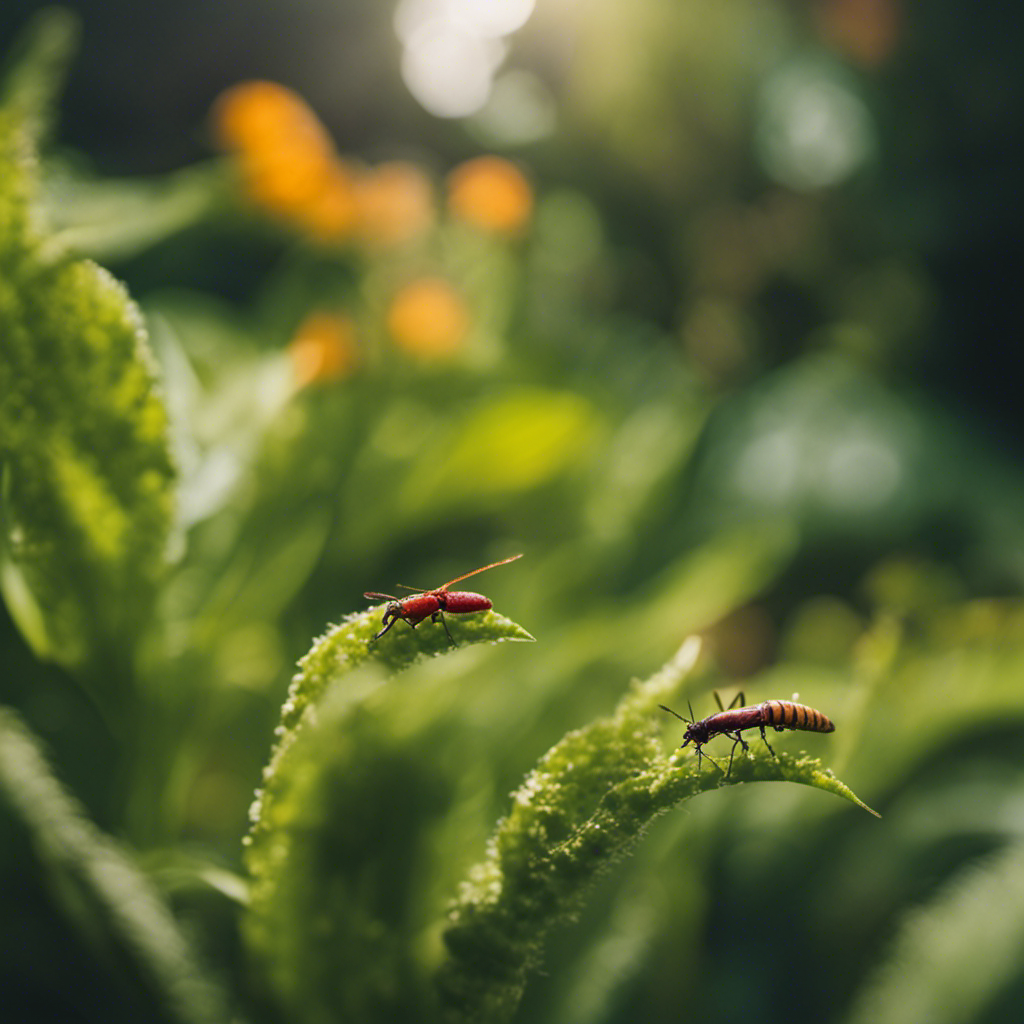
Understanding Garden Pests
To gain a better understanding of garden pests, it’s important to be able to identify the common insects and animals that can cause damage to your plants. By recognizing these pests, you’ll be equipped to take appropriate measures and protect your precious plants.
Some of the most common garden pests include aphids, slugs, snails, caterpillars, and squirrels. Aphids are tiny insects that feed on the sap of your plants, leading to stunted growth and yellowing leaves. Slugs and snails are notorious for nibbling on the leaves and stems, leaving behind unsightly holes. Caterpillars can quickly consume the foliage of your plants, while squirrels have a knack for disturbing newly planted bulbs.
Natural Predator Attraction
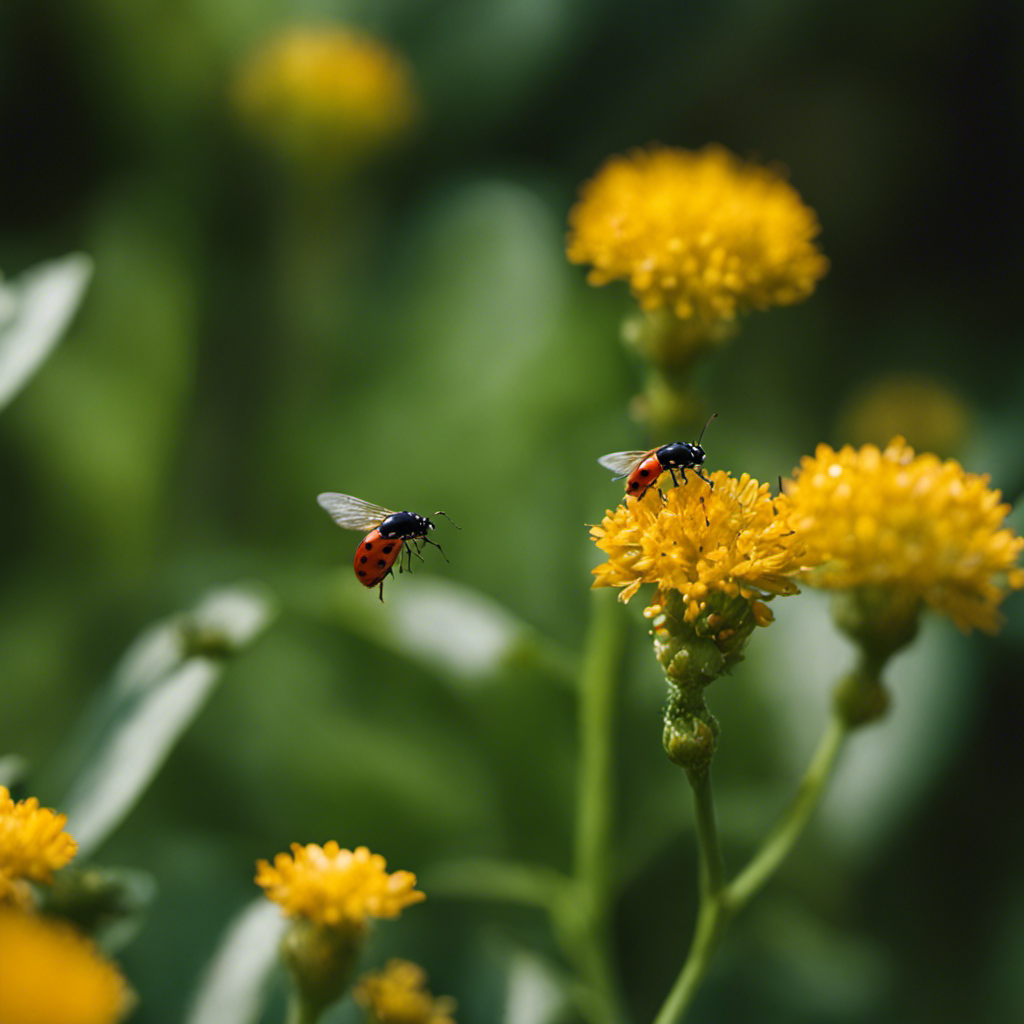
Attracting Natural Predators to Your Garden for Pest Control
One effective and environmentally friendly way to control garden pests is by attracting natural predators. By creating a welcoming environment for beneficial insects and animals, you can reduce the need for chemical pesticides and promote a healthy ecosystem in your garden.
Here are three simple methods to attract natural predators:
-
Plant diverse and pest-resistant varieties:
Opt for plant varieties that are known to be resistant to common garden pests. These plants will naturally attract natural predators like ladybugs, lacewings, and parasitic wasps, which feed on these pests and help keep their population in check. -
Create habitat and shelter:
Provide shelter for natural predators by incorporating features such as native plants, hedgerows, and insect hotels into your garden. These won’t only offer hiding places for beneficial insects like ground beetles and spiders but also attract them to your garden. -
Consider natural predator release:
In some cases, you may need to introduce natural predators to your garden to address specific pest problems. Research and choose the appropriate species of beneficial insects like nematodes, ladybugs, or praying mantises to release into your garden.
Companion Planting Strategies
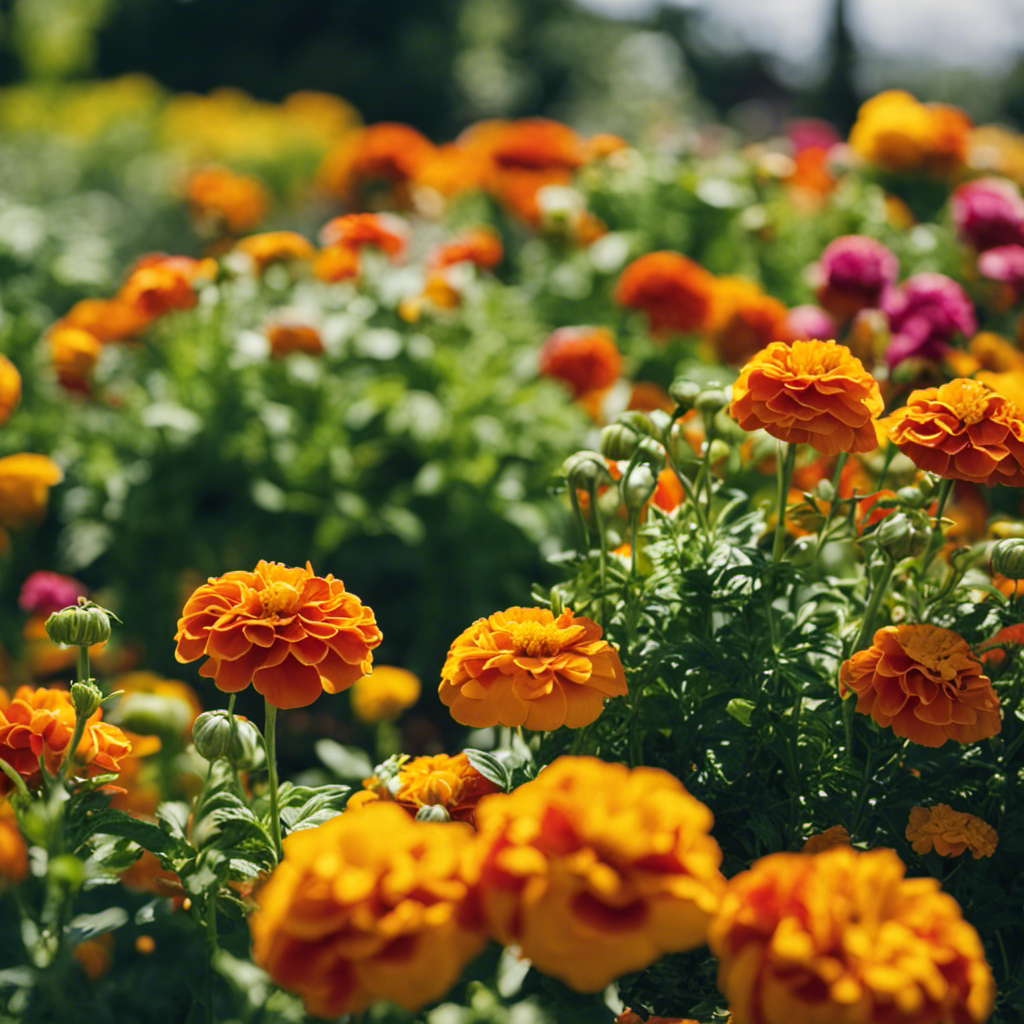
Improve pest control in your garden with effective companion planting strategies. Companion planting involves growing certain plants together to benefit one another. By strategically planting compatible crops, you can naturally reduce pest populations and increase yields.
Here are some examples of plants that work well together:
- Marigolds: These flowers deter aphids and nematodes.
- Basil: This herb repels mosquitoes and flies.
- Nasturtiums: These flowers attract beneficial insects and repel aphids.
- Tomatoes and carrots: Tomatoes protect carrots from nematodes.
- Cabbage and onions: Onions repel cabbage worms.
These examples demonstrate how companion planting can create a balanced ecosystem in your garden. Don’t be afraid to experiment with different plant combinations to find what works best for your specific needs.
Homemade Pest Repellents
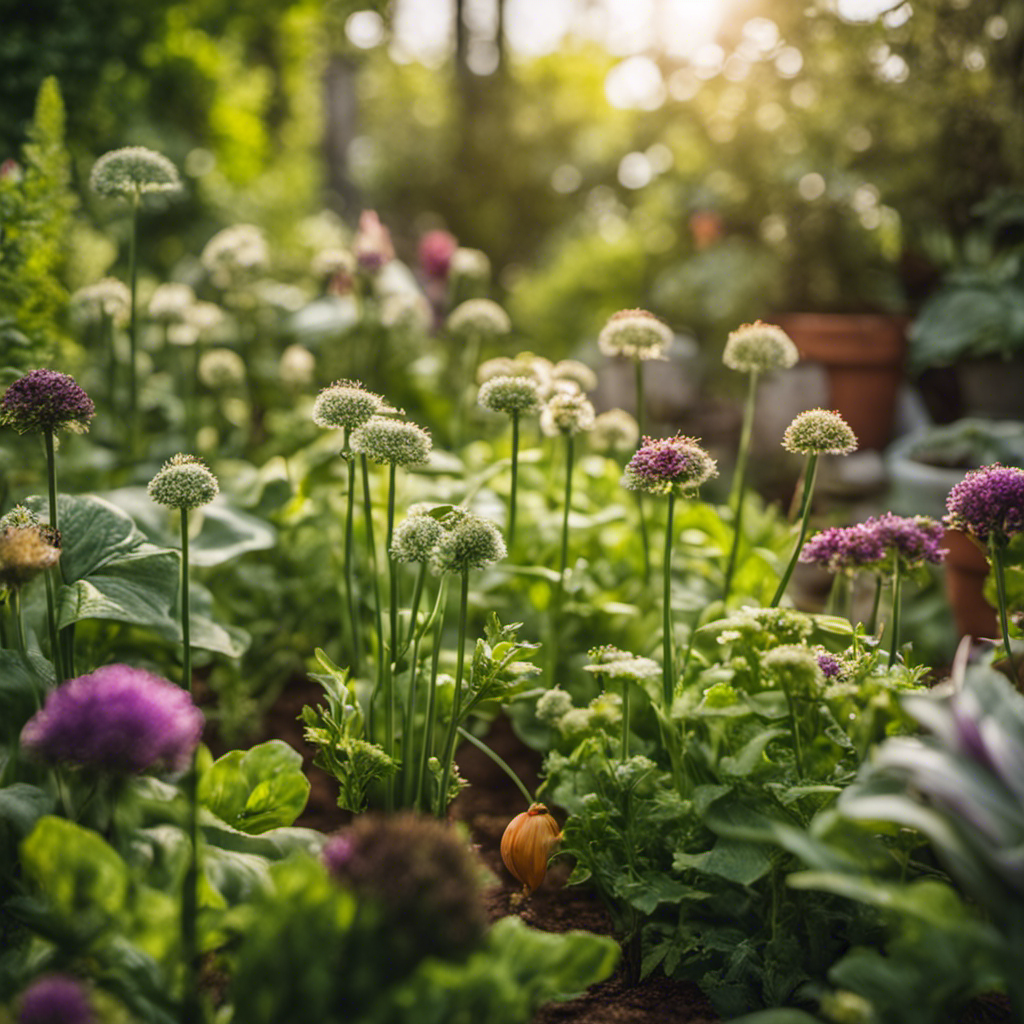
Make your own homemade pest repellents to naturally protect your garden from unwanted visitors. Here are three effective DIY pest control methods using natural insecticides:
-
Garlic Spray: Crush several garlic cloves and steep them in water overnight. Strain the mixture, then dilute it with water. Transfer the solution to a spray bottle and apply it to your plants. The strong aroma of garlic will deter pests such as aphids, caterpillars, and beetles.
-
Neem Oil: Mix a few drops of neem oil with water and dish soap. Shake well and spray the solution on your plants. Neem oil acts as a natural insecticide, repelling pests like whiteflies, mealybugs, and spider mites.
-
Chili Pepper Spray: Blend fresh chili peppers with water until you have a smooth puree. Strain the mixture and add a few drops of dish soap. Transfer the solution to a spray bottle and apply it to your plants. The spicy nature of chili peppers will discourage pests like slugs, snails, and insects.
Maintaining Healthy Soil

Maintaining Healthy Soil
To ensure a thriving garden, it’s important to focus on preserving nutrient-rich soil. Improving soil fertility is crucial for the health and productivity of your garden. One effective way to achieve this is through soil amendment techniques.
Start by adding organic matter like compost or well-rotted manure to your soil. This will provide essential nutrients and improve soil structure.
Another technique is cover cropping, where you plant specific crops that help enrich the soil. Legumes, for example, fix nitrogen, which is important for plant growth.
Additionally, rotating crops each season can prevent nutrient depletion and reduce the risk of pests and diseases.
By implementing these soil amendment techniques, you can maintain healthy soil that supports the growth of vibrant and productive plants in your garden.
Conclusion
So, there you have it! By using these organic methods to outsmart garden pests, you’ll be on your way to a thriving and pest-free garden.
Remember, attracting natural predators, practicing companion planting, creating homemade pest repellents, and maintaining healthy soil are all important for keeping those pesky pests away.
It may require some extra effort, but the rewards of a bountiful and beautiful garden are definitely worth it.
So get out there and start gardening like a pro!
